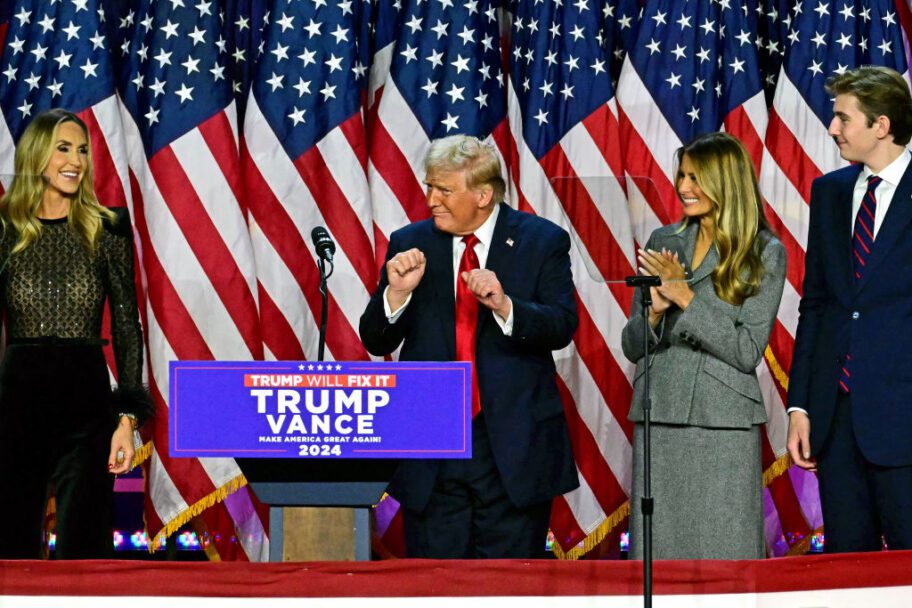In nearly every presidential election in my lifetime, since Jimmy Carter defeated Gerald Ford when I was two years old, the winning candidate has had more charisma. That’s charisma, from the Greek charisma, for “favor” or “gift.” That pattern continued yesterday, with Donald Trump’s defeat of Kamala Harris. If you’re a Democrat, and you want your party to win the presidency again, you should hope that next time they nominate a more charismatic candidate.
Note that “charisma” does not mean “charm” or “likeability.” It means—I’ll defer to Merriam-Webster here—“a personal magic of leadership arousing special popular loyalty or enthusiasm for a public figure (such as a political leader).” That “magic of leadership” can be inexplicable, and sometimes it can be demonic. Satan was a leader, just like Jesus.
I am aware that my argument sounds overly simplistic, reductionist. I’ll cop to that. The weakest link in my argument would be Dukakis vs. Bush, in 1988—neither seemed to have much magic. Call it a draw. And then we could look at Trump vs. Biden, in 2020. This one, too, might be seen as a draw, or as a competition between two utterly different kinds of charisma, the showboating narcissism of Trump losing to the glad-handing chumminess of Scranton Joe, a man first elected to the Senate at the age of thirty, one of the youngest ever. It was also the depths of the COVID-19 pandemic, and Trump was a uniquely polarizing figure.
But the evidence is pretty striking, with the megawatt charismatrons like Ronald Reagan, Bill Clinton, and Barack Obama all winning twice, and George W. Bush prevailing twice over better qualified but significantly more wooden opponents.
The question is often put, “Whom would you rather get a beer with?” I would phrase it differently: “Whom would you rather watch on TV as you drink beers?” I strongly suspect that even many Kamala Harris voters would rather kick back and watch a highlight reel of Trump than one of Harris. What would be on her highlight reel? What witty rejoinder, fine turn of phrase, impassioned peroration, spontaneous interaction, unexpected tomfoolery, or poignant story?
Charisma is not gendered. Aimee Semple McPherson had it. Oprah Winfrey has it. Gretchen Whitmer, Elizabeth Warren, Jennifer Granholm (born in Canada, alas, so not eligible), and Katie Porter would all have defeated Donald Trump. A hologram of Ann Richards would have won. Samantha Bee? Trump came from the world of entertainment, so why not? Alexandria Ocasio-Cortez is a polarizing figure, to be sure—but would she have done worse than Kamala Harris? No, she would have done better.
The question is often put, “Whom would you rather get a beer with?” I would phrase it differently: “Whom would you rather watch on TV as you drink beers?”
Of course, finding a charismatic candidate is one function of primaries. In 2016, Hillary Clinton cleared the primary field of all but some little-known candidates who dropped out early—like Martin O’Malley, Lincoln Chafee, Jim Webb—and one candidate, Bernie Sanders, who seemed minor, being so far to the left of most Americans, but ended up with 13 million primary votes to her 17 million. In the end, it did not serve the party well that it tried to coronate her, thwarting a competitive primary process. And this year, the party made the unprecedented move of nominating a candidate who had never won a single primary. In a series of primaries, would Kamala Harris have prevailed? Given her performance in 2020, one has to imagine that the answer is no.
Historian Molly Worthen, author of a forthcoming book on charisma, argues that charisma can, in fact, be understood, and that it has little to do with eloquence. Not all charismatic leaders are good public speakers, and they don’t have to be slick. Rather, “charisma resides in the story they tell,” according to Worthen. “All charismatic leaders have an instinct for the right balance of skepticism and desire to believe. They have a sense for how the stories of the status quo are no longer working for some subset of people and what new narrative might be more satisfying. Whether we’re talking about Andrew Jackson, Marcus Garvey, the Guru Maharaj Ji, or Donald Trump, they all saw how the current stories about the world were failing people and what story would be more persuasive.”
Eisenhower was no great public speaker, but he had a story: “I saved the free world.” Trump had a story. What was Kamala Harris’s story, other than “Be afraid”? Candidates need to do better—and political parties need primaries to help them do better. They need charisma. Not in place of ideas, and not as a cover to hurt people—like when Bill Clinton signed a free-trade agreement that shredded the livelihoods of so many American workers. But as a way to get a hearing, with the hope that the story they tell is one that deserves to be brought to life.

